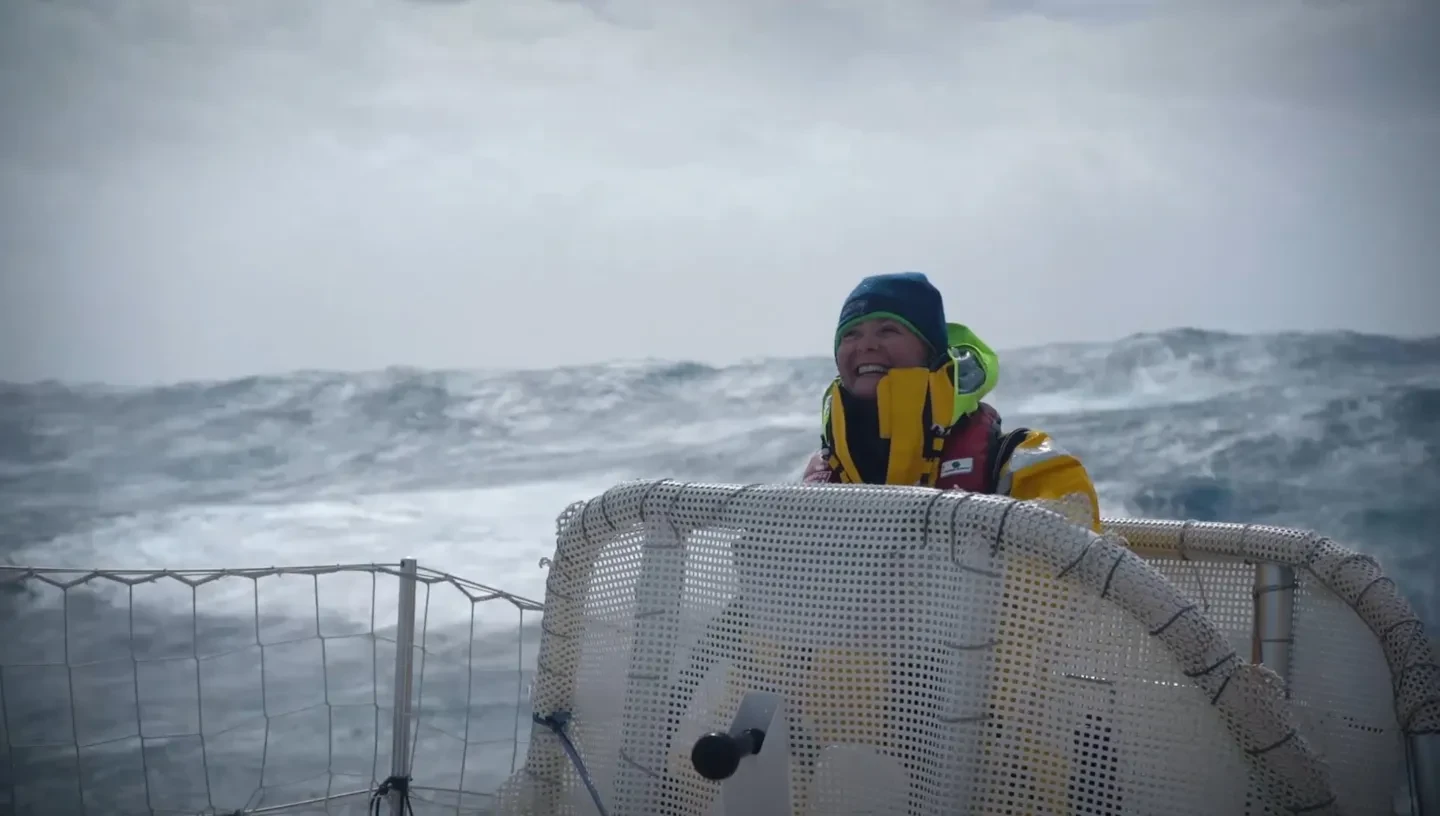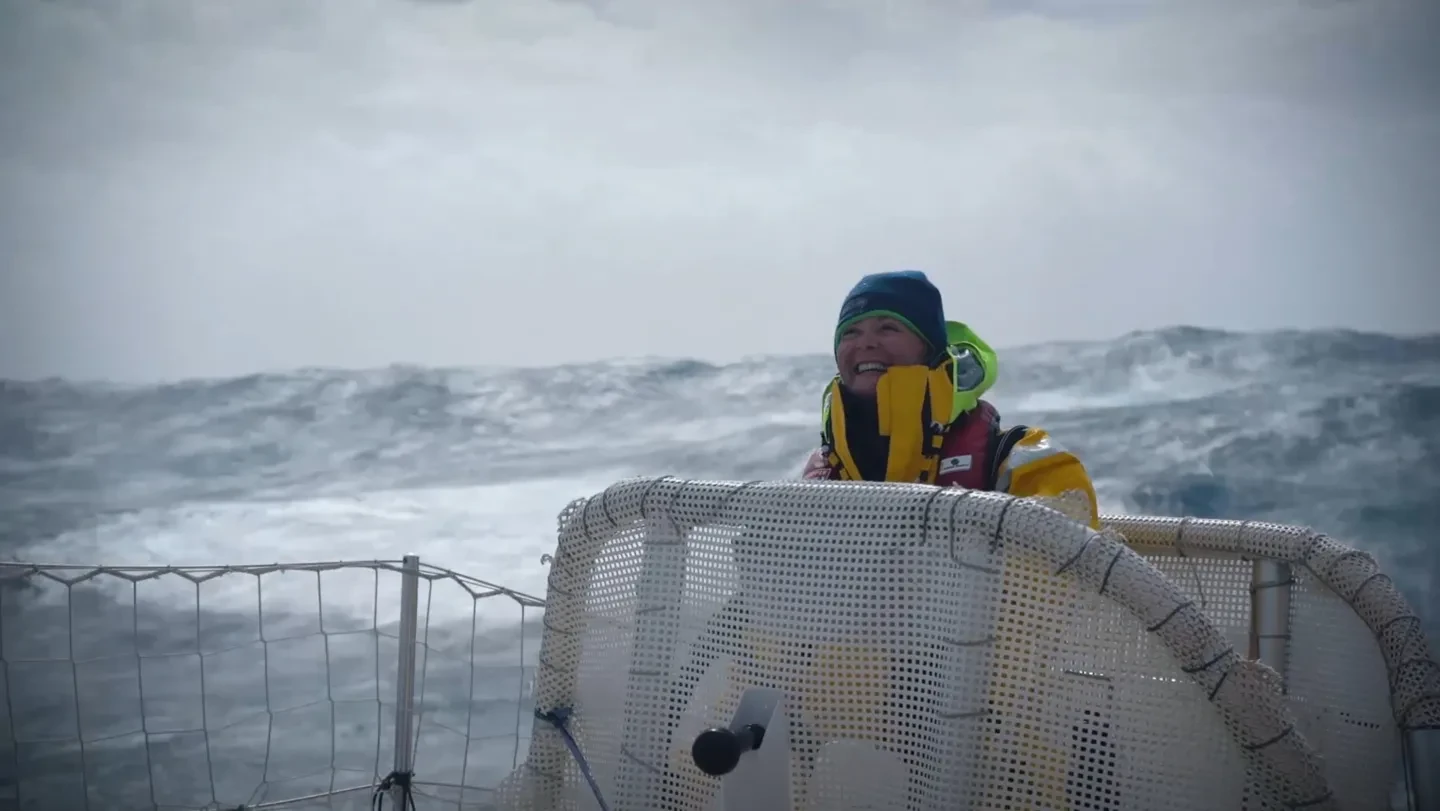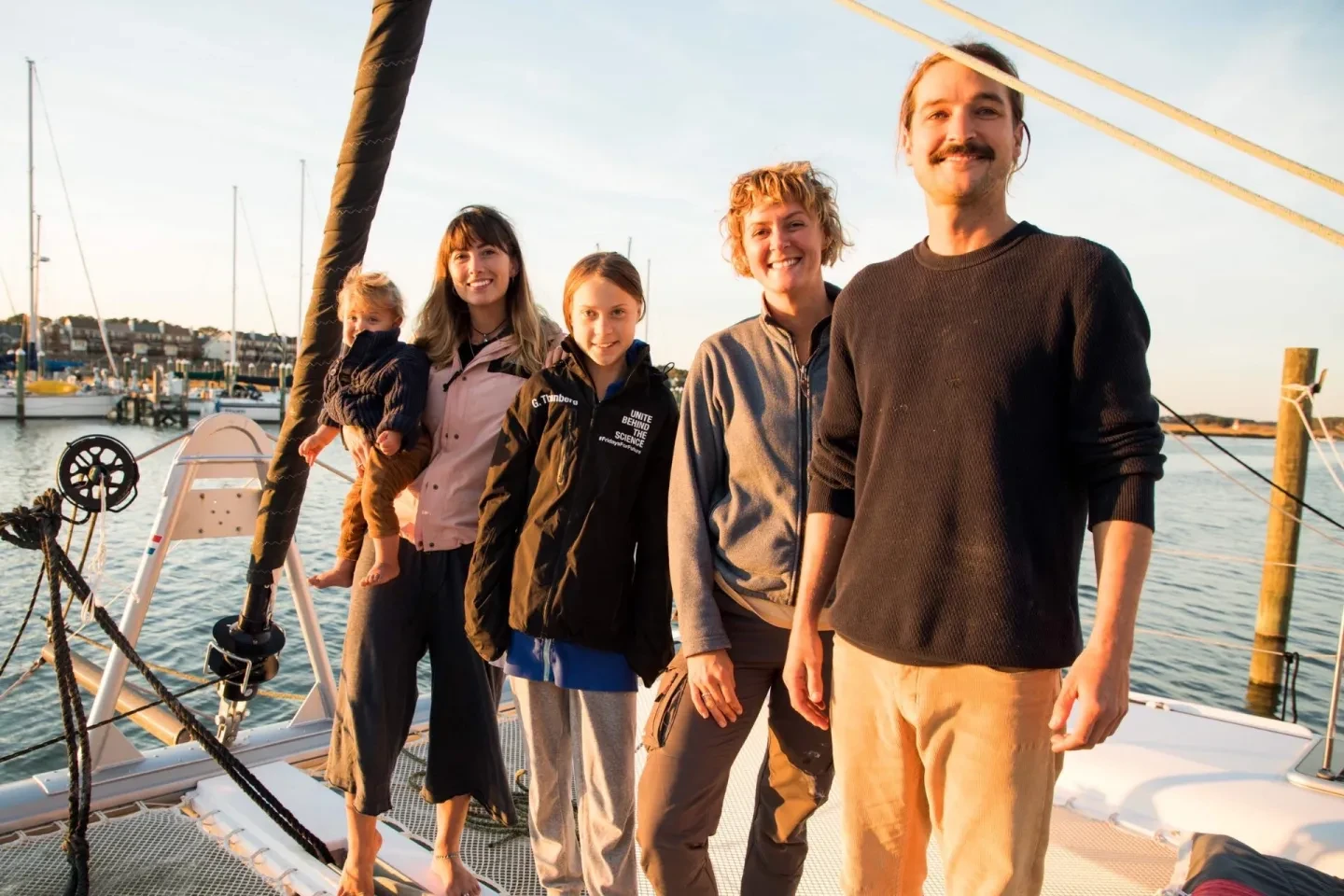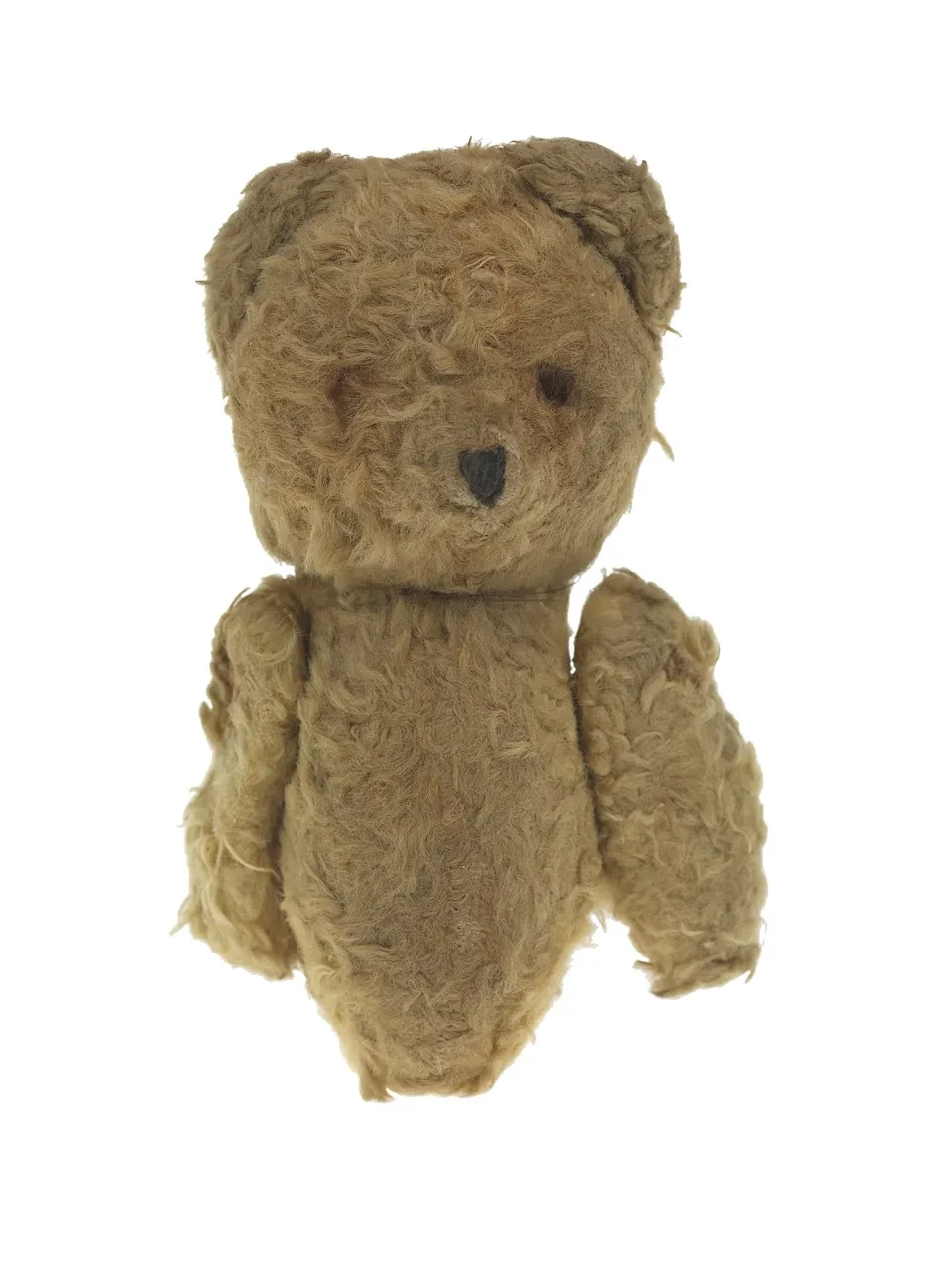
Having skippered her first Trans-Atlantic race at just 20, Nikki Henderson is one of the UK's leading young sailors. In 2018, Nikki became the youngest ever skipper of a round the world race at the age of 25
World Oceans Day is about celebrating our relationship with the ocean and Nikki has joined us for a very special Q&A with the museums Lloyd’s Register Foundation Public Curator: Contemporary Maritime, Laura Boon to talk all about her experiences of life at sea - from freeze dried food to sailing with Greta Thunberg.

Laura Boon: What first attracted you to the world of sailing?
Nikki Henderson: It was a way of exploring the world. I started sailing professionally at 17 and in my head it was a gap year option, but in a more challenging way. It was also a completely new world for me in which to redefine myself, a chance to step out of my bubble. Sailing is a community of a very diverse group of people, in terms of what they want from life and so it was very easy to fit in.
LB: You often sail in races, how does this impacts the sense of community? During a race do you just focus on your own team?
NH: Even when taking part in races there is still a really strong sense of community, under Maritime Law you are duty bound to give assistance. It doesn’t matter if you are a sailing boat, a cargo ship or a military vessel, everyone has to help each other out. There is also a sense that because we are so isolated, we need to look out for each other.
There is a strange dynamic between being focused on your little team but also being part of the wider community. One of the things that is so amazing and touching about sailing is that when an emergency does happen, regardless of how well they are doing in the race crews will literally travel for three days in the wrong direction to help someone. That is just what you do and it teaches you what true sportsmanship is about.
LB: What is the worst weather you have experienced?
NH: In the North Pacific in 2018, I sailed in a hurricane in over 110 knots of wind, which is about 130 miles per hour (enough wind to knock down trees). At the top of the wave it is like a cityscape and you are looking down at rolls and rolls of waves, each themselves really enormous. It was really scary but you just have to employ logic, you just have to keep going. Being part of a team is what keeps you going, having one person smiling through it makes you smile too. There is no-one else to call for help, no emergency services, you have to pull together as a team and draw strength from each other.
LB: Your role in the team is the Skipper, what does this involve?
NH: There is quite a strong hierarchy so how a sailing team runs depends very much on the skipper, they have the responsibility for keeping everyone safe and allocating tasks. But the rest of the team make a big impact, everyone has a role to play as because there are lots of skills that you have to employ not just to sail but to survive; you need engineers, plumbers, chefs, cleaners and even a vegetable keeper. Everyone has their own responsibilities in the team and contribute essential skills, as a skipper you are just the overseeing manager.
LB: What is the food like when sailing?
NH: Everyone pitches in with the cooking, but I think it is the worst job. You have to be down below, the boat is rocking all over the place and there is steam everywhere.
You have a choice to either go for freeze-dried or fresh food. Freeze-dried is really expensive, but means you can have all your favourite foods from Roast lamb, shepherds pies to Tikka masala. It is very filling, can taste pretty good, you just have to learn not to look at it, as it can look a bit like vomit. The airtight suits start to fill up after a bit too– it is definitely a windy food!
If you go for the fresh food option you do learn a lot about how to eat almost mouldy vegetables. When I went across the Atlantic which took over 5 weeks, we still had onions, sweet potatoes and cabbage which were fully edible by the time we got there. Herbs and spices are also really useful for improving the taste, and you can make food last for a really long time.
Storing waste is a huge issue so fresh food like potatoes are better than cans of low nutrition food.
My favourite recipe to make is mushroom risotto with canned peas, you can get the mushroom flavour from instant soups – it tastes pretty good.
LB: Last year you helped climate activist, Greta Thunberg travel back from the US by boat. Why did you get involved and how did it compare to your usual sailing trips?
NH: It was an opportunity I couldn’t say no to. I have deep respect for her courage and conviction for standing up for what she believes in, I wanted to find out what drives her and to help her. I didn’t really consider the level of press attention it would receive. This trip felt like it had an added level of responsibility, I don’t normally take passengers but with this trip we really sailed across two handed - myself and Riley Whitelum. Riley’s partner Elayna Carausu was occupied looking after their 11 month old baby, but Greta and her father Svante really pitched in with all the other tasks such as cooking.
There is this perception that it is all about the sailing, but the other tasks like cooking and hygiene are fundamental to survive and equally as important.

LB: In the Museum’s collection we have the Teddy bear mascot, Humphrey from the first all-female crew in the Whitbread round the world race. You have sailed on the Maiden, did your team have a mascot too?
NH: We took a teddy bear when I skippered Maiden too! I always like to take a meaningful book - the last couple of times I have taken Rudyard Kipling, Just So Stories with me, to act as little lessons and to remind me of real life. Music is also really great to have with you, but you really learn that you don’t need to take a great amount. The biggest things that you realise when you return from sea is the lack of materialism, it doesn’t matter what clothes you have, job you do, or what you look like, it is all about you as a person so you don’t tend to keep any mementoes.
You do need to find ways to stay awake at night on deck when on duty with no equipment. Games like I-spy get boring after a while but you end up playing silly games such as – ‘would you rather eat a spoonful of mayonnaise or cinnamon’.

Humprey the teddy bear was carried on the racing-yacht 'Maiden' during the 1989-90 Whitbread Round the World Yacht Race. It belonged to skipper Tracy Edwards. Humphrey has lost its legs, the right arm is partially missing and it has no eyes - the result of falling into a bilge pump during a storm from where it was retrieved some weeks later.
LB: What have you learnt from sailing?
NH: The best part of sailing is the freedom, you can turn your boat and point in any direction on the horizon and sail there. It teaches you how to be self-sufficient, how to be brave - you build confidence in yourself and you'll see what you can achieve with very little help. This builds your sense of perception, just as an astronaut looks down from space and sees how insignificant we are in the universe, sailing makes you realise how connected we are and how small to the bigger picture.
It makes you realise how powerful nature is. Nature is in charge and it is arrogant to think we have control. With sailing you have to learn to adapt, to live without control and work with nature. I think this is critical if we want to combat the current situation and save our planet, we need to learn how to work with Mother Nature and not against her.
LB: You are a record breaker, having been the youngest skipper of the Round the World Clipper race. Have you ever faced any barriers or preconceptions due to your age or gender?
NH: There are definitely barriers, but with barriers come opportunities. When you are limited due to your age, gender, race or background, if you give it a go and really push for it you stand out as there are less people like you. I was so determined, I so wanted to succeed that I chose to look the positive side and I tried not focus on the negative.
On the days I felt insecure or faced an underhand comment it could be tough but you have to decide do you want to do it or not? If you do you can't let things get to you.
For anyone facing barriers you need to be brave, there are always stories of people who have done so, so take that as inspiration. Don’t listen to those who try to make you feel small or put you down. They are insecure themselves, the strongest people are those who want to lift up those around them. Be brave and believe in your own dream.
LB: How has your time at sea affected your life back home?
NH: Time spent at sea is very challenging so coming home I don't sweat the small stuff anymore. It reset awareness of how beautiful the world is and I think you really do learn to see the beauty of very small things, so I go on hikes now and I see and the grass and the trees and flowers changing seasons, all these kinds of things are amplified now.
LB: The isolation of the current lockdown is sometimes compared to the experience of life at sea. Is there anything that you have taken from your sailing experience that is currently helping you?
NH: Unfortunately I don’t have my team with me, their plumbing and electrician skills would be very helpful as I am part way through renovating my home!
It has however taught me lots of handiwork skills which is very useful for DIY. It has been excellent in preparing me to only need to go to the grocery shop once every two or 3 weeks.
It has also instilled a self-reliance in being able to manage without those quick-fixes for entertainment like going to the pub or cinema. I have found myself employing the ‘how to tackle boredom techniques’ like sitting and looking out the window and thinking, reading and just dreaming about my next adventures at sea.
LB: How do you think the sailing community will adapt to the new restrictions due to COVID 19?
NH: Restrictions on travel will obviously have a real impact on sailing and the wider maritime community. Many of the big races may be postponed however I think this could also be a great opportunity as there will be more domestic or local tourism. Hopefully this will result people wanting to be a little bit more adventurous about their holidays in the UK with more
families or small groups trying out sailing. There are such beautiful places in the UK to visit on the coast and you can easily rent a small boat.
LB: Sailing can have a reputation for being elitist or very expensive to take part in, do you think this is fair?
NH: It is still sadly the case that sailing is not very diverse and can be elitist, but I’m personally really passionate about changing this.
For a long time sailing like many sports has had its own specific language, and some people like to keep this enigma around sailing but it doesn’t take a rocket scientist to sail and I hope over time this changes and people find it less intimidating.
We are an island nation and there is no reason why it should be expensive to sail. So many people and organisations are working to make sailing more accessible and this is one of the reasons that my work speaking in schools and at events is so important to me.
LB: Final question, have you got a message you would like to share with us this World Oceans Day?
NH: Nature and the Ocean are the only things that truly connect every single person on this planet, and if we want to save our planet we need to unite and work together as one team. Unity is always stronger and the ocean is vital to that, it is a symbol for how we are already all connected.